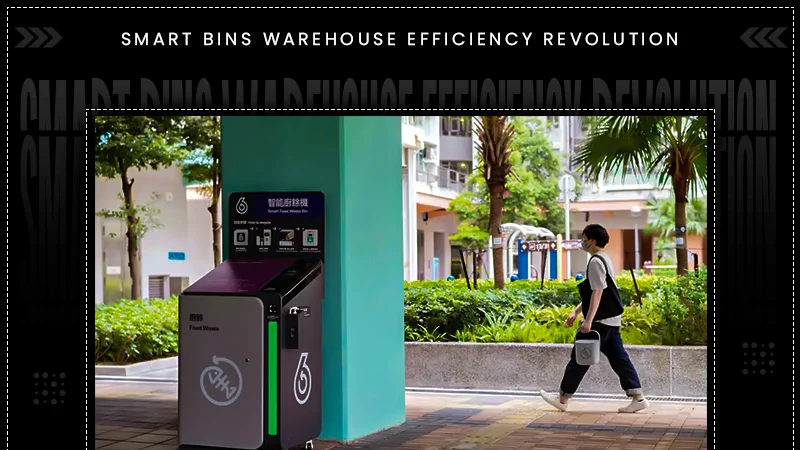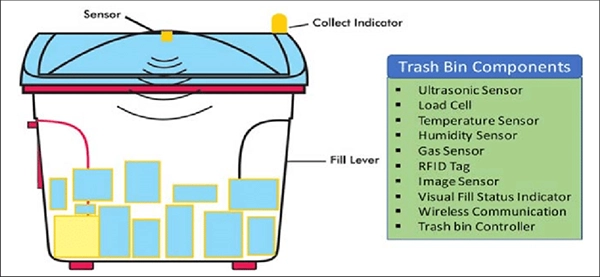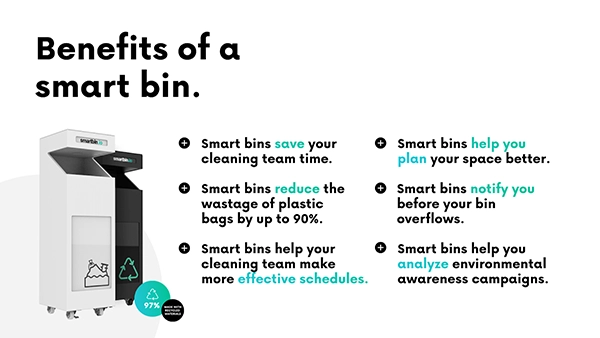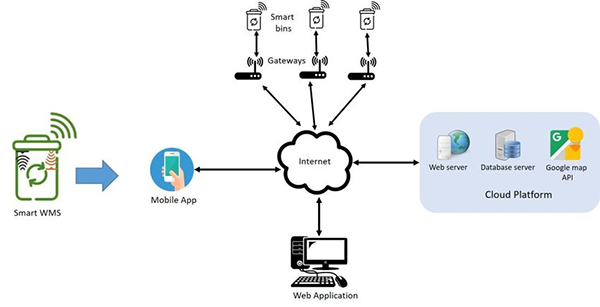
I’ve always been fascinated by the potential that technology has to transform our lives. And, not only is this making waves in almost every industry, but it also promises to make things easier, and warehouse efficiency is no exception, especially with smart bins.
In fact, these smart warehouse bins also integrate technologies like Artificial Intelligence, the Internet of Things (IoT), and the latest robotics to make the complete waste management process convenient. (Source: Clean Robotics)
So, in this read, We’ll delve into the fascinating world of smart bins and how they are actually streamlining the warehouse process and boosting overall productivity.
Let’s start!

Smart bins are not just the average storage container, it’s rather intelligent systems that are well-equipped with savvy innovations like advanced sensors, RFID tags, and barcodes. These components usually work in proper harmony to track inventory, optimize storage, and automate various tasks.

As someone who is almost impressed by the transformative power of technology, I can now confidently say that smart bins are the major game changer for all warehouse efficiency. So, here take a look at some of the striking benefits of its implementation.

While the concept of smart bins may actually seem a little complex to you, but its underlying technology is surprisingly straightforward. Here’s a simplified breakdown of how these systems operate.
Do You Know?
According to Clean Robotics, smart automated bins can enhance the proper recycling process by up to 90% accuracy and acceleration.
Despite offering some great benefits, it’s still important to acknowledge the challenges and limitations associated with their implementations. So, as someone who has been closely following this technology, here are a few key areas that I’ve identified where further innovation is needed.
Besides these challenges, the potential benefits that they offer outweigh their limitations. And as technology continues to evolve, we can expect to see further advancements in the system that can make the process more accessible and reliable.
Smart bins hold great potential to revolutionize warehouse operations. This can help you automate some of the most monotonous tasks like picking and sorting the items. And by reducing this manual work from the system, you can not only minimize your management cost but also reduce the overall risk of manual errors.
While some challenges and limitations exist in almost every industry, we can ensure that the rapid advancements in the segment will pave the way for more enhanced warehouse management.
Subscribe to our newsletter and get top Tech, Gaming & Streaming latest news, updates and amazing offers delivered directly in your inbox.